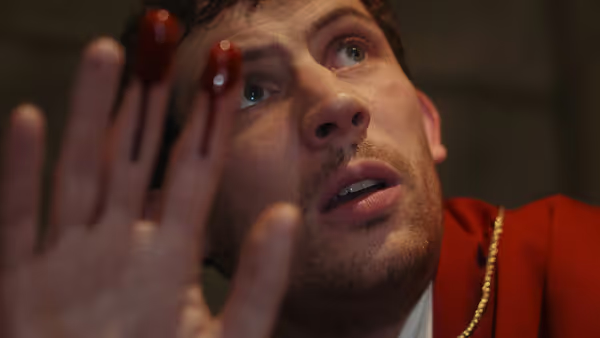‘Women and Minorities’ make better films. Fight me. (An End-of-Year Film Industry Analysis)


When a film was well received this year, it was usually because it was channelling the anger and frustrations of those who have been left behind.
This wasn’t your usual raft of ‘Diversity Hires’ or “The value of Diverse Storytelling”-ass movies. These films were specific, working things out on the page. By doing so, audiences flocked to these films in droves, raved about them endlessly on social media, and made them can’t-miss Cinema.
Because, in this new era of Film, it’s not enough to tell a story, or even a cathartic story. You’ve got to tell a useful story. Something people can claw into, argue about, find common ground with, fight over, rip to shred and remake in new ways.
At a lot of industry events this year i’ve heard about ‘Immersion’, ‘Immersive’, and this idea of Audiences wanting endless choice, and autonomous storytelling. Some have gone as far as to say that personalisation of stories (especially through AI), is where the industry is going.
This couldn’t be more wrong.
Current storytelling can be consumed in isolation, but at the end of the day, you are still receiving a story for an author, actors, crew - there are at minimum two of you in the exchange, at least. Once a machine takes this over, and a human is the only one in the room - this becomes boring. Sooner or later, with this model, people will either want multi-player capability, or they’ll start streaming it to other people - their customisable game is only valuable to them when they’re sharing it.
Also, people are overestimating the audience’s bandwidth in late stage capitalism. You’re asking people to put in the work of making their own entertaining narratives - crafting the prompts, or choosing the right paths. Most people need to zone out, watch something that’s been lovingly prepared for them, enjoy an event piece or an indie flick that makes them cry or laugh or think. Even storytellers much prefer to receive a story on a Friday night than make a new one from scratch. Even the D&D players among us mostly refer to the dungeon master, and even they look forward to following the whims of the group, so no one person is wholly responsible for being entertaining.
And this is the bottom line, this is the future of the industry — people connect with each other on the personal level, and that’s the definition of story. The only way to filter the world is through your values, and people want to consume people’s stories in order to test, validate or reassess those values. This principle is as old as humans themselves. There is no force, no technology, no change in society that will change that basic human need for community, however fraught and contentious that community is - and stories are a community sport, otherwise they’re boring, useless, and masturbatory.
There is one more key I shall give for free, and that’s the power of mystery. I once wrote on ye olde Substack that the Red Carpet needs to die, and mystery needs to return to the art of film - films, not actors, but films themselves need to become less accessible before release, and inspire more FOMO, so that when the film becomes available in the local cinema, people feel they’ve got access to something. That ticket price now is not just access to a story, or even a conversation - it’s access to a secret. People will pay a lot for a secret.
So, Hollywood, are you listening? More cryptic trailers, fewer interviews, or quirkier questions, more on-set gossip and social media videos, more ‘leaks’, more paps catching stars on-set. More Stars, build more stars! Play the game of FOMO, make everything a ‘secret’, and you’ll revive the theatregoing experience.
But also, and I can’t stress this enough - stop relying on the theatregoing experience. Vinyl is a luxury, so is the theatre. It’s not obsolete, it’s just a luxury. Treat streaming the way you used to treat TV (bumper promos, pilot testing), and treat the Theatre the way the music industry treats Vinyl (cultivate fans of Production Companies, not IP, and then sell the Theatrical window as a 1000 fans-level luxury).
So, without further ado - the films that over-performed this year, and why.

The Substance
There is something to be said for shock value, and star names, but ‘The Substance’ made the rounds through word of mouth because it took insane risks with the form, and took it’s own message and theme to the extreme. In a social media era of intense visual scrutiny, women are taking the majority of the heat on all fronts, from the personal up to the Celebraeic. Catharsis played a factor here, but the film’s lack of dialogue also played a huge role in people unpacking the film on social media. This was not a broad effort, rather the work of a few people mentioning certain elements of the story, and the comment’s sections doing the rest. Finally, the aesthetics and visuals of the film were so carefully considered, that it was practically catnip for Faneditors. This is the kind of press and love you cannot buy - it’s when good artistry meets a hungry audience.

Wicked
I cannot stress enough - aside from the stars involved, Wicked would have been nothing without a Large set being surveilled for the good part of years by Paparazzi with drones, and Ariana in a dress you could see from space. That simmering pot, those ‘leaks’, became pivotal to what I mentioned earlier - being in on a secret.
Remember - anyone, at any time, can book a ticket to a tour or a landlocked performance of Wicked. They can look up a slime tutorial. Listen to the Soundtrack. The likelihood is they’ve already seen it - and the likelihood is, not everyone loved it. Some people adored it, but not enough for the opening weekend it had.
Therefore - both the fresh take of having Elphaba be black, the generally diverse cast, the wish-fulfilment of Jon M Chu and his love of the form, and the care taken in the production value - all coupled with the secret of it all - played into the renewed novelty of the release.
OOOOhoHOHOHOOHOOHOOHOHOOOOOOOOOOOOOOOOOO!!!!!!!!!!!!!!!!!!!!!!!!!!!!!!!!

Kneecap
This is a guess, but i’m willing to bet 90% of what tipped people over into buying a ticket was “Content Warning: Irish Language”.
Everybody loves a rebel, and the marketing materials for Kneecap communicated immediately that this was no history lesson (although the film is incredibly educational, and you hardly feel it). Things were gonna be illegal, against the rules and trippy. All this from a poster with a fake content warning on it. Genius.
Once you’re in the theatre, it’s hard not to be evangelical about the film, and tell everyone to watch it. The value of being able to come out of the film with a new artist to listen to, a new appreciation of the history of Northern Ireland, a story about beating the odds that’s all actually true, and visually a great time at the theatre you can recommend to your mates - that’s double what you paid for the ticket, honestly. Then, Michael Fassbender on top of it, to pull in your less tuned in friends.
You root for them to succeed, and in turn, want to be part of them succeeding.

So why do women & ‘minorities’ make better films?
Well. First off - being underestimated does give a film an air of secrecy…seeing as there’s less promotion…but I don’t think that’s it at all.
Truly - I think these are the types of filmmakers that have to be crafty and symbolic with their underlying meaning, therefore leaving layers to be uncovered by voracious fans.
They can’t put everything on the table, because it either will (or has) been rejected by the money involved. Therefore, there’s a craftiness to the storytelling, a threading of the needle, a tongue-in-cheek attitude to pushing the Political boundaries with an air of humour, irony, aestheticism, absurdism, whimsy, or all of the above.
This is what audiences pour over, point out, tear into, make TikToks about, make gifs of, and feel comfortable spreading the word. They want to share references like a secret language. Ultimately - they want to use stories to build community. All three films did this on their respective scales.
There is catharsis to all these films, for the characters involved and the audiences they represent, but all audiences feel included in that catharsis.
This entire rubric can be scaled up to the blockbusters, too. I think of one ‘under-performance’ in particular that felt entirely overexposed to the audience, with zero catharsis (if anything, a little too much ‘end’ and not enough ‘middle’) and a lack of understanding as to who the audience was likely to sympathise and connect with - they simply killed all three of them, daresay unceremoniously considering the plot. It had very little symbolic meaning, despite the entire film operating completely on archetype, and left very little for anyone to pour over once they’d left the cinema. Aside from, maybe, the scenes with the cute boys in them, which people gleefully filmed on their iPhones, despite that literally being Piracy. That isn’t a gas tank that goes far enough to cement your film in the minds of audiences, though. Certainly not enough to cover your budget.
Next year, I encourage films on all scales to make mystery movies again. More than anything, people want what’s new, what feels exclusive, what feels just out of their reach. Reaching it, therefore, becomes worth it, at any price. Reaching it becomes it’s own reward. All that Dopamine flooding people’s systems - whether they love or hate the film, they’ll talk about it.



